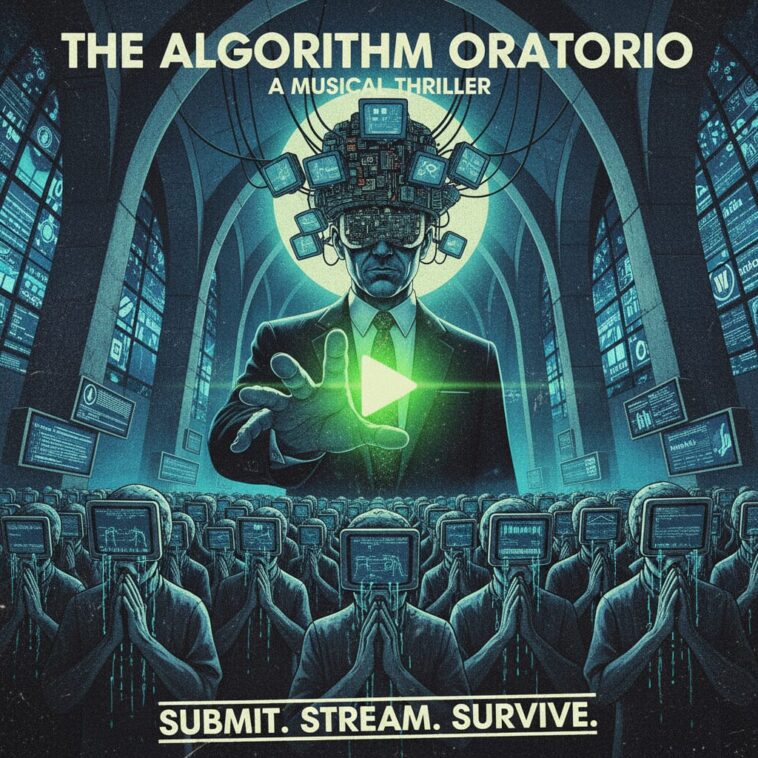In a stunning display of technological prowess that would make Alexander Graham Bell weep with envy, Spotify has announced they will now allow free users to pick and play specific tracks. YES, you read that correctly. In the year 2025, when we have AI that can write poetry and cars that drive themselves, the world’s largest music streaming platform has finally cracked the code on letting people choose what music they want to hear.
Truly, we are living in the future!
The Investigation: Following the Money Trail
Let’s examine the evidence behind this “groundbreaking” announcement that has tech journalists frothing at the mouth like it’s the second coming of the iPod.
Spotify currently operates on a freemium model that would make medieval torture devices blush with shame. Free users have been subjected to shuffle-only playback, limited skips, and ads that interrupt more frequently than a toddler asking “are we there yet?” on a cross-country road trip. Meanwhile, Premium subscribers—those enlightened souls willing to fork over $10.99 monthly—enjoy the radical luxury of choosing their own music.
The numbers tell the real story. Spotify boasts over 500 million users globally, with roughly 60% still clinging to the free tier like passengers on the Titanic refusing to believe the ship is actually sinking. That’s 300 million people who’ve been artificially restricted from basic functionality that radio DJs mastered in the 1920s!
Now, suddenly, these same users will be granted the revolutionary ability to select songs. Not unlimited skips, mind you—let’s not get crazy here. They’re still limiting skips to maintain that delicate balance between “generous” and “not so generous that people might actually be satisfied.”
The timing is suspiciously convenient. This announcement comes just weeks after Spotify’s latest quarterly earnings showed slower subscriber growth and increased competition from Apple Music, Amazon Music, and YouTube Music. It’s almost as if someone in Stockholm’s executive suite realized that artificially crippling your product might not be the sustainable growth strategy they taught at business school.
The Absurdity: When Limitations Become “Features”
Here’s where the cognitive dissonance reaches fever pitch. Tech media outlets are treating this like Spotify just split the atom. Headlines scream about “major updates” and “game-changing features” as if the ability to choose your own music represents some kind of quantum leap in human achievement.
Imagine if Ford announced that their new cars would now allow drivers to choose which direction to turn, and automotive journalists hailed it as revolutionary innovation. That’s essentially what’s happening here, except somehow even more ridiculous because at least cars came with steering wheels from the beginning.
The mental gymnastics required to frame the removal of artificial limitations as innovation would qualify for Olympic gold. It’s like a restaurant proudly announcing they’ll now let customers order from the menu instead of forcing them to eat whatever the kitchen feels like making. “We’re excited to introduce MenuChoice™, our revolutionary dining experience where customers can actually select their own food!”
This is the subscription economy’s greatest trick: convince people that basic functionality is a premium feature, then act like a benevolent god when you occasionally grant peasants a taste of what they should have had all along.
The real masterstroke? Getting tech journalists to write breathless coverage about it. These are the same publications that claim to hold Silicon Valley accountable, yet here they are, stenographically reporting Spotify’s press release as if it’s legitimate news. One has to wonder if anyone at TechCrunch paused to ask themselves, “Wait, shouldn’t this have been possible since, I don’t know, the invention of digital music?”
The Judgment: The Rent-Seeking Economy’s Perfect Crime
This isn’t innovation—it’s hostage negotiation. Spotify spent over a decade training music lovers to accept that music streaming means surrendering choice, then positioned the return of basic functionality as generosity. It’s the corporate equivalent of someone stealing your wallet, then expecting gratitude when they return your driver’s license but keep all the cash that was inside.
The broader pattern is unmistakable. AWS “accidentally” created the rent model that keeps businesses perpetually dependent on cloud infrastructure. Netflix convinced an entire generation that ownership is outdated, transforming movie collections into monthly tribute payments. Now Spotify frames the removal of artificial limitations as breakthrough innovation.
These companies didn’t disrupt industries—they disrupted the concept of ownership itself. They’ve successfully convinced consumers that paying indefinitely for limited access is somehow superior to buying once and owning forever. It’s the economic equivalent of Stockholm syndrome, and we’re all too busy binge-watching to notice we’re the hostages.
The truly brilliant part is how they’ve weaponized tech journalism to sell this narrative. Every “feature” announcement gets covered like legitimate news, when it’s really just corporate PR dressed up in innovation theater. The same publications that should be asking hard questions about these business models instead regurgitate press releases with the enthusiasm of unpaid interns.
Spotify’s announcement isn’t news—it’s evidence of how completely the subscription economy has warped our expectations. We’ve been conditioned to celebrate the return of basic functionality as if it’s a gift from benevolent tech overlords, rather than recognizing it for what it really is: a company removing artificial limitations it never should have imposed in the first place.
The Aftermath
The next time a streaming platform announces they’re “generously” allowing users to access basic functionality, remember this moment. Remember how eagerly tech media celebrated the removal of artificial barriers as innovation.
So, fellow digital serfs, what other “revolutionary” features are you hoping tech companies will graciously bestow upon us next? And which artificial limitation disguised as a business model has personally driven you closest to canceling your subscriptions and returning to physical media like some kind of technological hermit?





GIPHY App Key not set. Please check settings